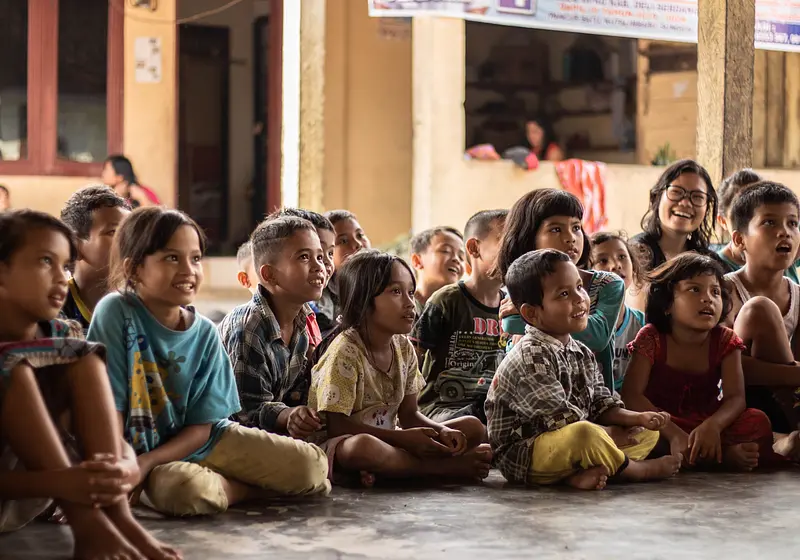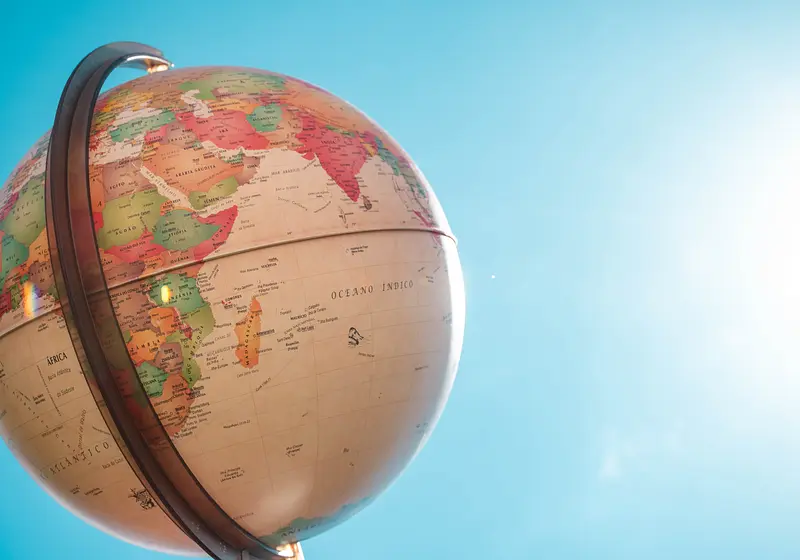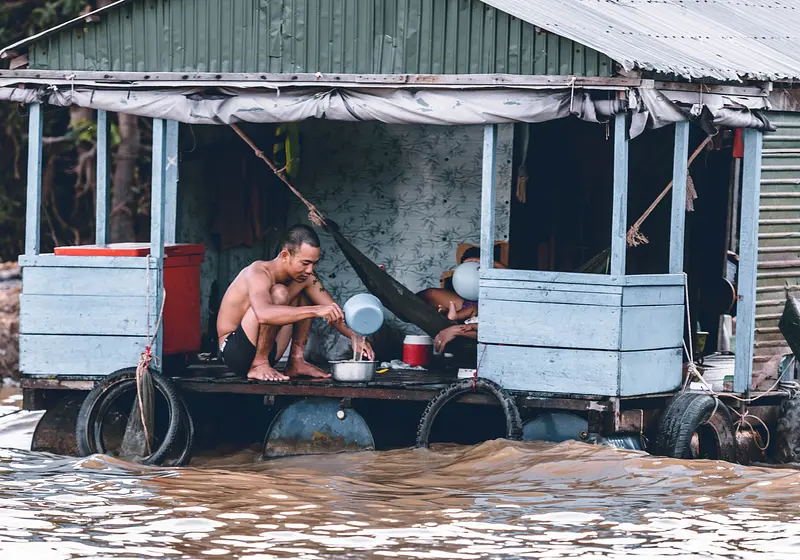All my life, I have lived happily with my family in a little yellow house in the Philippines, a dog at my heels and my cousins nearby.
To the Western world, my childhood here has been perfectly ordinary. I spend most weekdays sitting in air-conditioned classrooms, weekends going out with friends. I regularly dine in new restaurants with my parents, and spend a few hours a week on the treadmill at the gym.
Yet, as someone who has been fortunate enough to have visited a wide array of foreign countries and engaged with people from all over, I know that this lifestyle is all but “average” in a developing nation, and have consequently grown aware of the importance of recognising the disparities in what is considered “normal” around the globe.
So, from my experiences and observations, here are 4 distinct realities of growing up in the developing world.
*Trigger Warning: Brief mentions of sexual assault and suicide
Let us slide into your dms 🥰
Get notified of top trending articles like this one every week! (we won't spam you)1. The Juxtaposition of Poverty and Wealth

“In the States,” began my uncle, who decades ago had chosen to migrate with his wife to the West, “whether you are rich or poor, you can afford to buy your family a steak.”
In the years that have fallen between those words and the present, I have never really taken it upon myself to investigate just how true they were. But one thing has always remained perfectly, blatantly clear: such certainly isn’t the case in the Philippines.
Here, families of ten reside in dim, sweltering homes of thin wood and corrugated metal, only about a dozen square meters large. Parents sacrifice half of their pandemic incomes for the mobile data necessary to receive their children’s learning materials through Facebook Messenger. People consume white rice and salt, hoping for some sense of satiation.
Here, one truly comprehends just how deep poverty can actually run.
Never mind steak when 70% of the population can’t afford any nutritious food to begin with.

Yet right alongside this exists another world: one of sixty-plus-story residential skyscrapers, of Lamborghinis and Bugattis roaring down slim roads, of millionaires congregating for polo matches and brunch.
I am a part of neither of these worlds, yet it takes no effort to witness both in action. Once you exit the gates of my home, for one, you can walk straight and find yourself immersed in a chaotic, congested world of informal settlements, or you can turn left and make your way right into a well-kept golf and country club.
The dichotomy truly is as much staggering as it is heartbreaking.
2. The Pervasiveness of Colonial Mentality
The Philippines, being the “gateway to East Asia” that throughout history has aligned itself with various key trade routes, spent 333 years under Spain and 48 under the United States. During this time, it developed a prevalent “inferiority complex,” viewing the various cultural components of its Western colonists as far superior to its own.
It is a mentality that exists to this day.
Lighter skin, for example, absolutely dominates the media. Skin whitening products come in all shapes and forms and are available anywhere, from the smallest gas station convenience stores to the largest, most high-end malls. Every echelon of Philippine society strives for the title of “mestiza”— a Filipina who unmistakably possesses Western qualities.
And who can blame them, when pretty much every Filipino who rises to fame and is subsequently praised for their beauty is relatively fair-skinned? Bella Poarch, Pia Wurtzbach, Catriona Gray, and Anne Curtis are only some examples.
Beyond the skin, however, is the mind. Here, one’s fluency in English, supplemented by a convincing American twang, is a powerful and unmatched status symbol, furthered by the fact that all private schools instruct students fully in English while all public ones do so in Tagalog or in regional dialects.
Additionally, Filipinos fortunate to live or study abroad for a brief period of time come home excited to brandish their “refined” intonation, and in the media, the most successful, elegant, and educated characters tend to converse with Tagalog-speaking counterparts in perfect English.
Such a mentality runs so deep that several serious presidential campaigns have even been launched on the promise of making the Philippines the 51st American state.
3. Unabashed Depravity and Criminality
“We hope that you will not allow the error we have committed against you to stand as a stumbling block to that future which we all look forward to. We, therefore, ask you to find it in your heart to pardon us for the wrong which we have done against you.”
In 1982, on their knees, television personalities Vic Sotto, Joey De Leon, and Richie D’Horsie issued their vague public apology to Filipina teen actress Pepsi Paloma, whose rape accusations against them had previously been met with denial, public shaming, and even rumoured threats of violence. Following this, their careers flourished, continuing to thrive to this day, whereas Paloma ultimately took her own life at only 18 years old.
“She was so beautiful, [I] should have been first. What a waste.”
In 2016, such offhanded, public remarks by then-Davao Mayor Rodrigo Duterte on the brutal and fatal sexual assault of a missionary by inmates rightfully sparked intense online outrage when they were made during a campaign. Less than a month later, he was elected President of the Philippines.
The list of such shameless activities goes on. The police murder suspected addicts— often members of the lowest income classes— on sight, before their families, with no proof supporting their cases whatsoever. Almost weekly, reports of some form of widespread government corruption come to light. During one of the most significant and divisive presidential elections in history, over 150 voting machines simply happened to “break down.”
And rarely are there any consequences.
4. The Supremacy of Religion

It is believed that poorer nations tend to be more religious, as faith provides the less fortunate with some sense of hope and control over their lives. Although this may not be true for all, it certainly is for the Philippines.
Here, Roman Catholics constitute about 80% of the population. Most, if not all, of the Filipinos I know are practising Catholics or Christians, in the sense that they pray daily and attend worship each Sunday. Most private schools in the nation are thoroughly Catholic, adopting religious names and taking on priests and nuns as teachers. It isn’t uncommon for public spaces like shopping malls and hair salons to lead prayers (optionally, but over loudspeaker) at 3:00 each day.
This, in and of itself, is not a bad thing. Filipino Catholics and Christians in general are kind, generous, loving, and welcoming people. The danger, however, comes when religion drives matters of the state.
Filipino families may, for example, openly love relatives who identify as part of the LGBTQIA+ community, but rarely do they support them, and same-sex unions are far from legal. Additionally, the country may be a global frontrunner in gender equality, and citizens may rally in support of women, but due in large part to religious beliefs, divorce and abortion are strictly prohibited and annulments prove to be a long, difficult, expensive process.

Take the Quiz: Which Indian city is the perfect holiday spot for you!?
Let's match you with an Indian city that you would love!
In Conclusion...
There are, of course, benefits to growing up in a developed nation. The cost of living is low, there is widespread access to personal drivers and housekeepers, and there tends to be a strong, expansive sense of community, even with those one has just met. I am a proud Filipino, and I wouldn’t trade my childhood here for anywhere else in the world.
But that doesn’t mean I am blind to where it falls short.
My awareness of the fact that what would solidly be a middle-class life in the West is unmistakably an upper-class one in the Philippines has shaped my perspectives and my life, opening me up to gratitude and to a desire for social engagement.
It is my hope that, regardless of which region of the world you’re from, this article does the same for you.
















